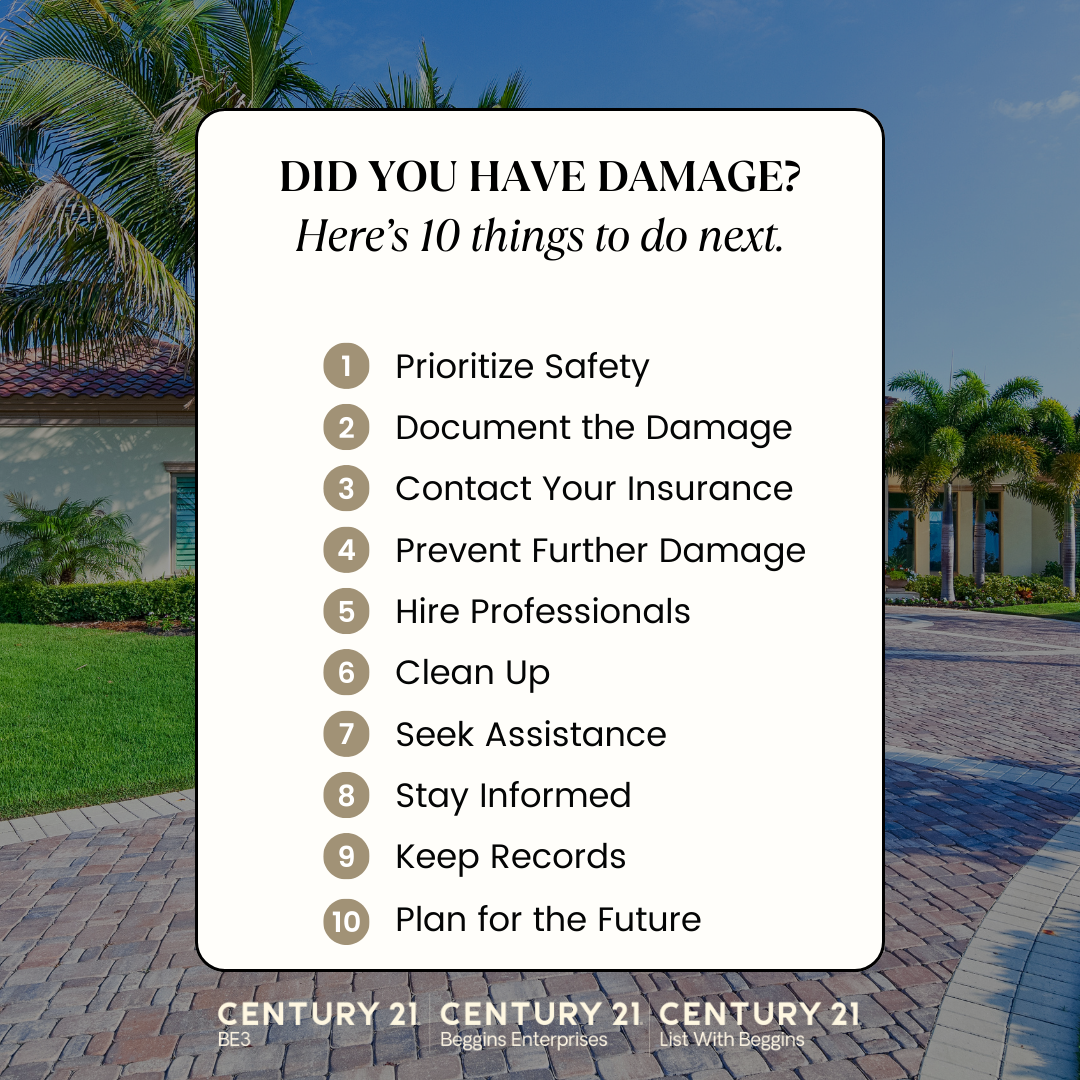Prioritizing Safety
Safety is the top priority in any emergency situation. If it’s unsafe, evacuate immediately, and only return home when local officials declare it safe. Keep a watchful eye for downed power lines and report them promptly. Opt for battery-operated flashlights instead of candles to prevent fire risks. If you suspect damage to gas, water, or electricity lines, turn them off.
Documenting Damage
Before making any repairs, it’s crucial to document the extent of the damage. Take detailed photos and videos of all affected areas. Create a list of damaged or lost items, including their purchase dates and values. Save receipts related to home repairs or any expenses incurred due to relocation.
Contacting Your Insurance Company
Reach out to your homeowner’s insurance agent as soon as possible to report the damage. Inquire about immediate relief or advance payments if available. Understand your deductible and what your insurance covers or doesn’t cover. If you have flood insurance and experienced flooding, contact your flood insurance provider separately.
Preventing Further Damage
Taking steps to prevent further damage is essential. Make temporary repairs, such as covering broken windows or sealing leaking roofs with tarps. Keep receipts for any materials or services you purchase during this process.
Hiring Professionals
For significant repairs, it’s wise to hire licensed and bonded professionals. Prioritize research to ensure the contractors you choose are reputable and avoid falling victim to post-disaster scams. Always obtain written estimates for all repair work.
Clean-Up Process
Remove items that have been waterlogged and are prone to mold growth. Use fans and dehumidifiers to dry out affected areas. Wear protective gear, including gloves and masks, when cleaning to reduce the risk of exposure to mold and other contaminants.
Seeking Assistance
Register for assistance with FEMA if it’s available in your area. Additionally, check for local disaster relief services, such as shelters, food distribution, and medical support. Reach out to local community groups or churches that may be providing assistance during this challenging time.
Staying Informed
Stay informed by tuning in to local news or a battery-operated radio for updates on safety, weather forecasts, and available aid. Follow any boil water advisories or other safety directives issued by local authorities.
Keeping Records
Maintain meticulous records of all conversations, emails, and correspondence with your insurance company. Save receipts for repairs, replacements, accommodations, meals, and any other related expenses.
Planning for the Future
Once you’ve addressed the immediate aftermath, consider how to fortify your home against future hurricanes. This might include installing storm shutters or reinforcing your roof. Also, review and potentially adjust your insurance coverage based on the lessons learned from your recent experience.
Lastly, remember that you don’t have to face the emotional toll of a natural disaster alone. Lean on your community, seek support from friends, family, or professionals when needed, and take care of your emotional well-being during these challenging times.
I am here to assist you. Please reach out if you need anything. 


 Facebook
Facebook
 X
X
 Pinterest
Pinterest
 Copy Link
Copy Link

